Question And Answer
Publications
Articles, publications, books, tools and multimedia features from the U.S. Institute of Peace provide the latest news, analysis, research findings, practitioner guides and reports, all related to the conflict zones and issues that are at the center of the Institute’s work to prevent and reduce violent conflict.
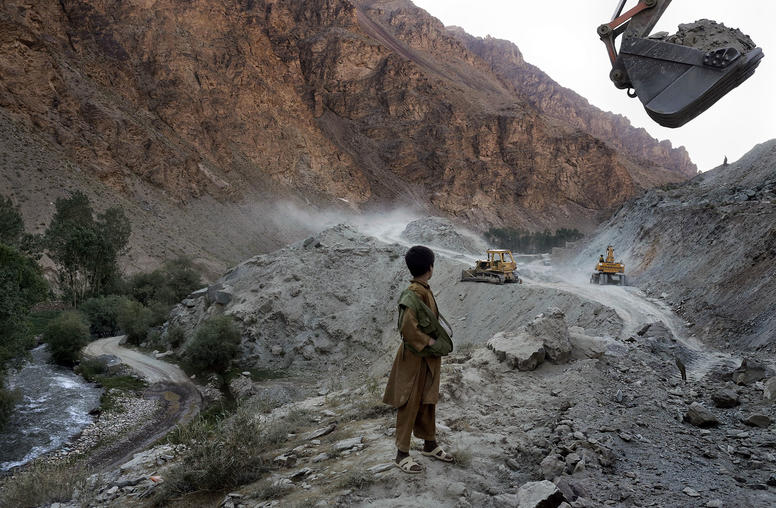
Can Technology Help Afghanistan Avoid the Resource Curse?
Afghanistan’s mineral wealth, roughly estimated at upwards of $1 trillion, is sometimes seen as the country’s potential savior—with prospects to generate large government revenues, exports, and some jobs. On the other hand, international and Afghan experience amply demonstrates the downside risks associated with mineral exploitation—macroeconomic and fiscal distortions; waste, corruption, and poor governance; environmental degradation; and the risk of financing or fomenting violent conflict, thereby undermining peacebuilding. The so-called “resource curse” is not destiny, however, and some countries have managed to avoid it, though Afghanistan faces much greater challenges than most when it comes to beneficially developing its mining sector.
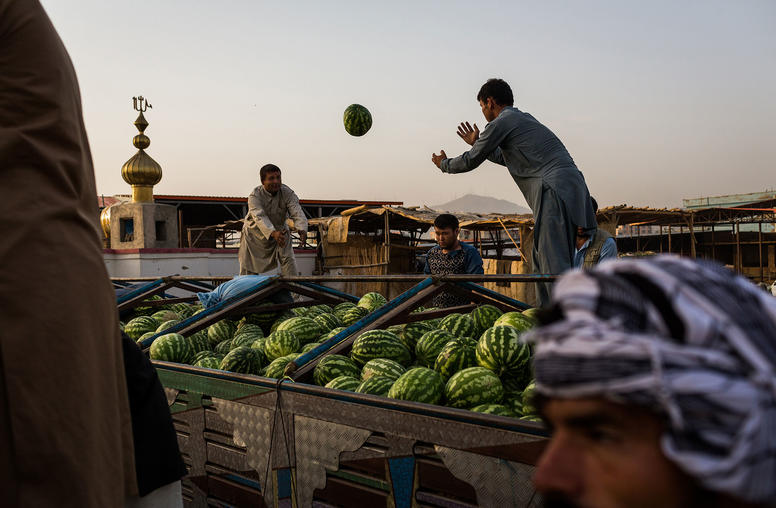
How to Secure Afghanistan’s Future
From a diplomatic and process standpoint, Geneva Conference on Afghanistan was generally seen as a success by participants (though some countries were not represented at the minister level), and the Afghan government showcased the progress it made in implementing reforms and national priority programs over the past two years. But what did the GCA accomplish substantively, what was left undone, and what questions were left unanswered?
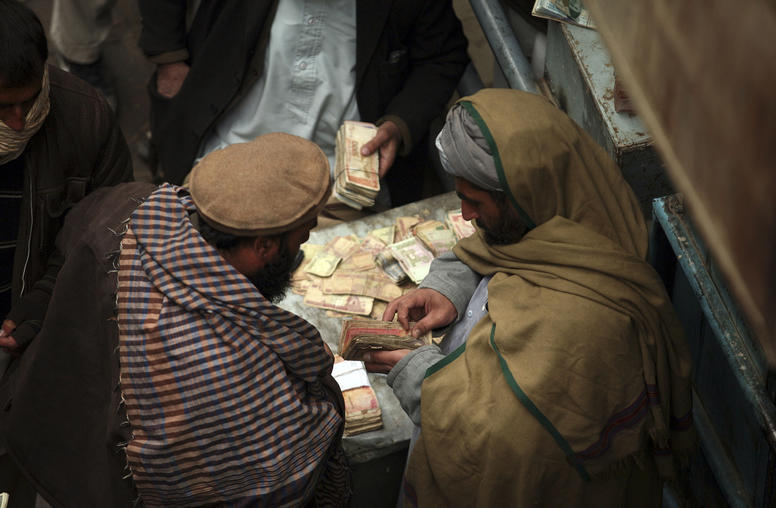
How Afghanistan Can Avoid Another Fiscal Crisis
Afghanistan’s last presidential election, in 2014, was followed by—and arguably precipitated—a fiscal crisis, which brought the country to the verge of fiscal collapse. What are the lessons that should be learned from the 2014 experience, and what can be done to avoid a repeat in 2019, which would be even more disastrous?
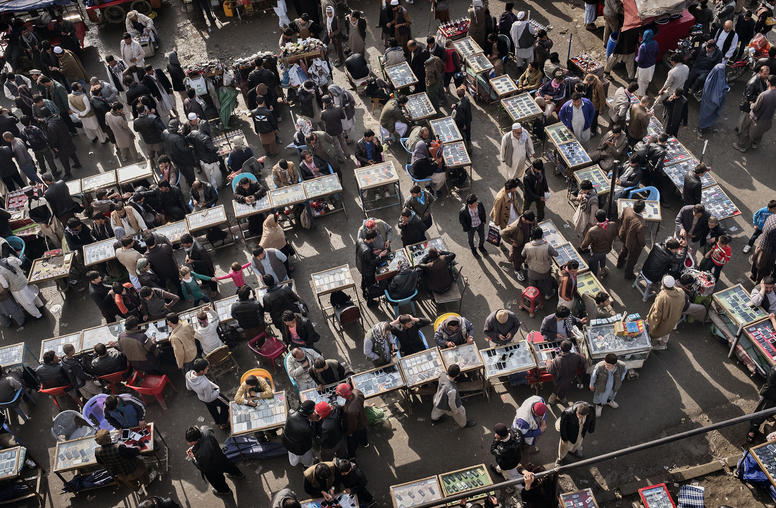
Afghanistan’s Economic Development Hinges on the Peace Process
Breaking out of Afghanistan’s current economic stagnation, rising unemployment, and poverty will only be possible if there is strong, sustained progress toward durable peace and political stability. Lowering security costs and, over time, reducing the extremely high aid dependency is the only way for the country to move toward balancing its budget books.
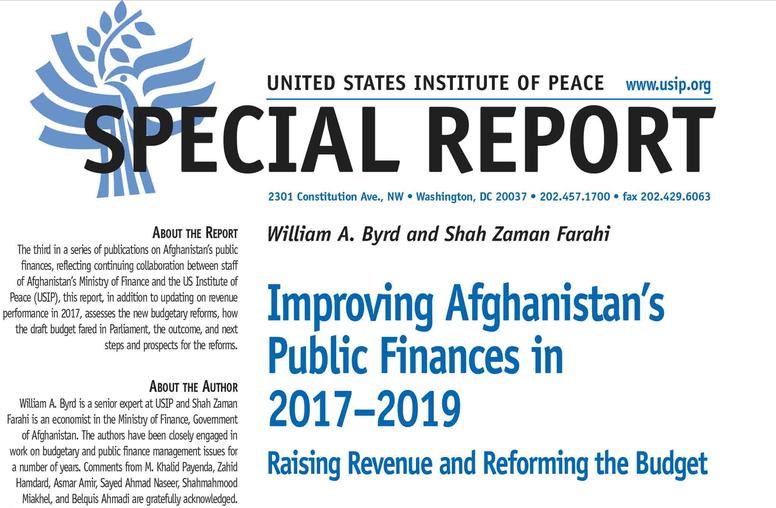
Improving Afghanistan’s Public Finances in 2017–2019: Raising Revenue and Reforming the Budget
The Afghan government has recently embarked on important reforms to the national budget, embodied in the 2018 budget approved by Parliament early this year. This budget sets in motion an envisaged two-year reform process to achieve greater overall transparency, better development programming, and reduced corruption. The third in a series on Afghanistan’s public finances, this report updates revenue performance in 2017 and assesses the new budgetary reforms, how the draft budget fared in Parliament, the outcome, and next steps and prospects for the reforms.
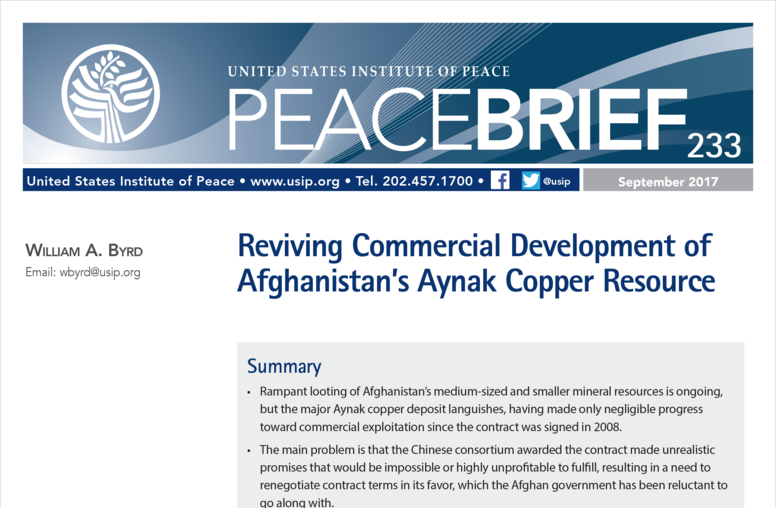
Reviving Commercial Development of Afghanistan’s Aynak Copper Resource
While other, smaller mineral resources are being rampantly looted, Afghanistan’s large Aynak copper deposit—worth upward $50 billion—has languished unexploited despite being contracted to a Chinese consortium nearly a decade ago. This Peace Brief seeks to understand what went wrong and explores options for breaking out of the current impasse. Resuscitating the development of Aynak, though challenging, would send a powerful signal of beneficial exploitation of Afghanistan’s mineral resources.
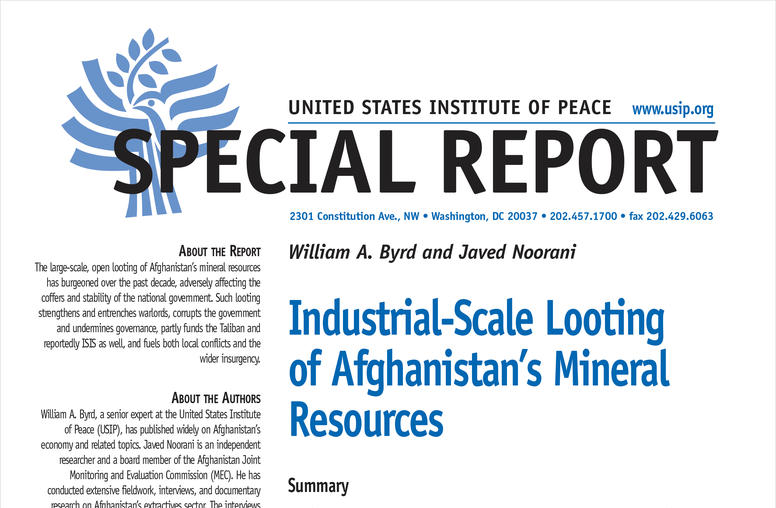
Industrial-Scale Looting of Afghanistan’s Mineral Resources
Afghanistan has been plagued by large-scale, open looting of mineral resources, involving significant mining operations, bulk transport of minerals along main roads, and crossing the border at just a few, government-controlled points. This mineral looting, amounting to hundreds of millions of dollars per year, involves widespread corruption, entrenches warlords and their networks, and fuels both local conflicts and the wider insurgency in Afghanistan. The government needs to begin to get a better handle on resource exploitation and to collect more substantial royalties and taxes from ongoing mining activities.
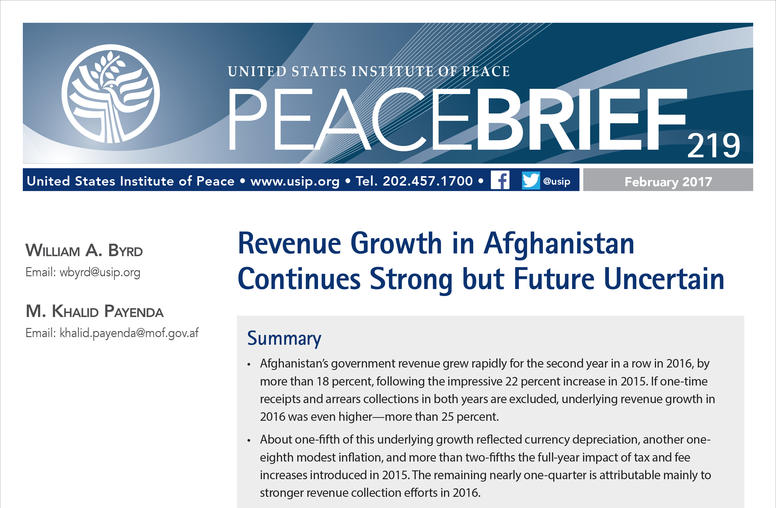
Revenue Growth in Afghanistan Continues Strong but Future Uncertain
This Peace Brief analyzes the main ingredients behind this success. In the end, however, the authors believe that sustained robust revenue growth will hinge on a durable revival of the Afghan economy, which in turn depends on achieving major progress toward peace.
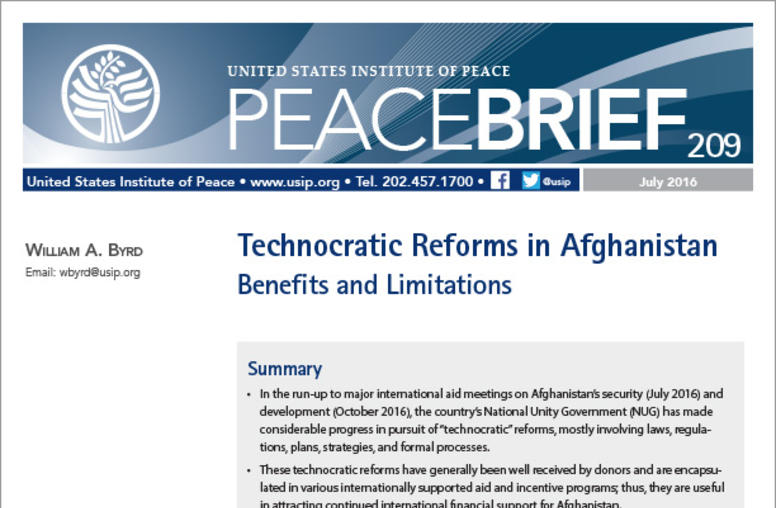
Technocratic Reforms in Afghanistan: Benefits and Limitations
Afghanistan’s “technocratic” reforms have resulted in impressive progress in areas such as public financial management. However, these reforms alone will not solve the country’s pressing security, political, and economic problems. This brief outlines the benefits and limitations of technocratic reforms and emphasizes that government and international attention should not be diverted from concrete, short-term measures to improve government functioning, strengthen security, and stimulate a mode...
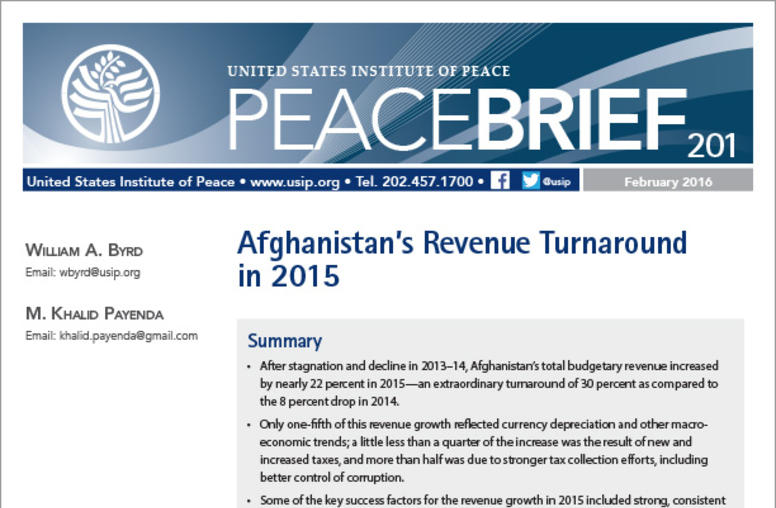
Afghanistan’s Revenue Turnaround in 2015
Afghanistan experienced an impressive revenue turnaround in 2015. This brief examines the sources of the revenue increase and the actions that helped spur it, and discusses lessons learned and future challenges.